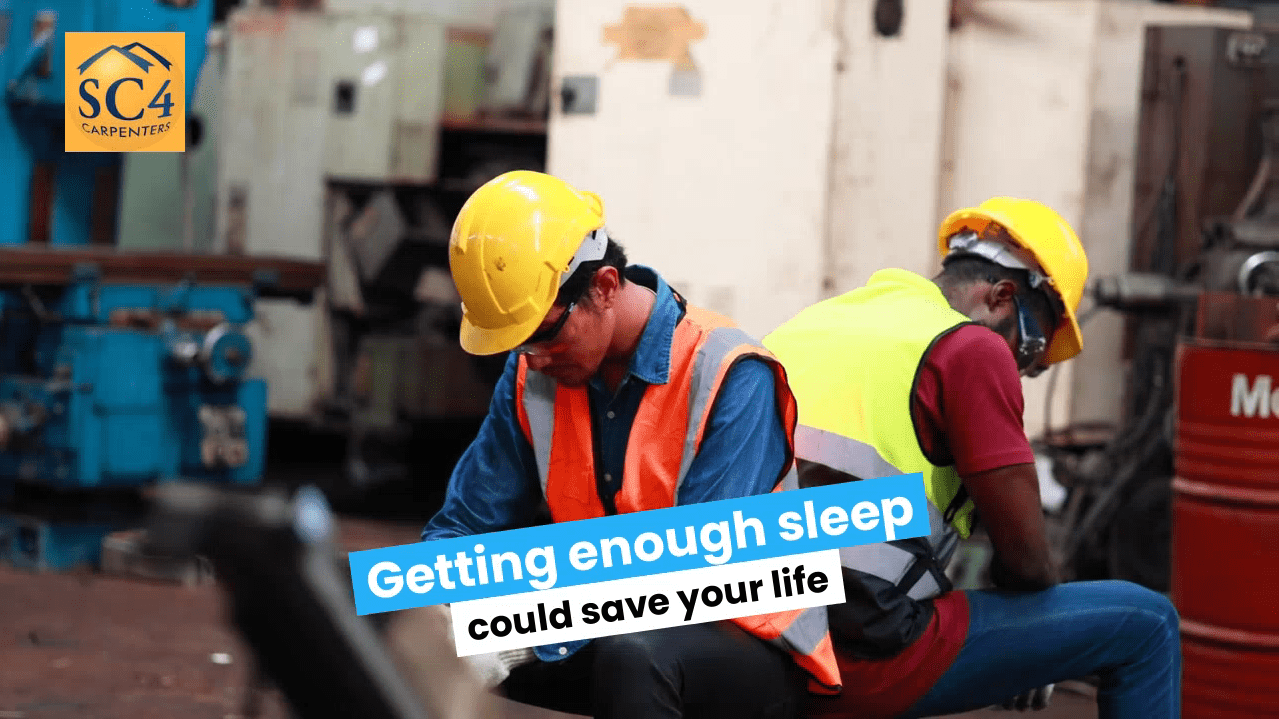
What Are The Dangers of Sleep Deprivation in The Construction Industry?
‘Sleeping on the job’ is never safe in any sector, but in many construction roles, sleep deprivation can be extremely dangerous and have severe implications on a person’s physical and mental health, as well as increasing the risk of dangerous and potentially fatal injuries. With early starts, long hours, and high-pressure work environments, sleep deprivation is unfortunately prevalent in the construction industry. In this article, we will explore the dangers of sleep deprivation in the construction industry and how it can put workers at risk.
4 main signs and symptoms of sleep deprivation:
- Daytime fatigue: When workers are fatigued from lack of sleep, their bodies will naturally feel sluggish, and they will be prone to feeling drowsy. The workforce will also tend to suffer related symptoms like irritability, grogginess, and difficulty concentrating.
- Confusion: Lack of sleep can impair judgement and memory, often leading to general confusion and poor decision-making abilities. In a high-pressure industry like construction, this could lead to workers taking unnecessary risks or making errors of judgement, which could potentially place them in danger when performing their duties.
- Irritability: Sleep deprivation can make a person more irritable, causing them to become short-tempered and impatient, which can create communication trouble when working in a team. In construction, where teamwork is everything, this may lead to difficulties between individuals in the group, reducing cooperation and preventing teamwork, thereby placing workers at risk.
- Weakness: If you've ever experienced a couple of sleepless nights, you know that exhaustion seeps into every part of your body, making even the easiest tasks seem impossible. This weakness could become particularly dangerous when operating large types of machinery where a worker's strength is vital to controlling their equipment.
The silent killer – how the effects of sleep deprivation can escalate into severe on-site hazards.
The immediate effects of moderate sleep deprivation may seem mild, but they could easily escalate into fatal consequences in a construction setting. Poor communication, impaired motor skills, and slow response times can lead to inattention at the wrong time, causing injury to workers onsite. This could result in accidents involving heavy tools, sharp objects, dangerous substances, and falls from height leading to serious injury or even death.
Being easily distracted, making errors, and forgetting things could lead to avoidable trips and accidents, lost equipment, and misplaced PPE. Aside from the impact on productivity and team cohesion, the sleep deprivation symptoms could cause other workers to fall, leading to further accidents and injuries. Stress, irritability, and rapidly changing moods could cause conflicts between workers or cause them to behave inappropriately, posing a dangerous risk to themselves and others.
In the most serious cases of insomnia and sleep deprivation, workers may literally fall asleep on the job… Impairment while using machinery and falling asleep on the job may seem like something that won't happen on your site, but this is where accidents are most likely to happen. Machinery and construction plant must be operated with full attention and energy to ensure proper use, and the same goes for remaining awake and alert throughout the day.
Encouraging healthy rest habits among your site workers
While long shifts and early starts may not leave much room for rest during many construction projects, it is essential for site managers and contractors to correctly recognise that without proper sleep, workers become a danger to themselves and those around them. Contractors can take proactive steps to ensure that their employees take regular breaks, have achievable KPIs, and are trained and educated in the importance of rest and sleep hygiene.
By prioritising worker safety and addressing the issue of sleep deprivation in construction, businesses can reduce their rates of accidents, injuries and onsite fatalities, helping create a safer and more productive working environment for all.
Click on the categories below to find out more about:

Connect with Us
Share this Page
More Posts
Recent Posts
- Breathe Easy, Work Safe: The RPE Every Site Worker Needs
- From Site to Strategy: Simon Mead Promoted to Associate Director at SC4
- SC4 named Cala Contractor of the Month, October 2025
- Why is Neurodiversity so important in Construction?
- Our Favourite Carpentry Project Of 2024: Cromwell Court, Old Basing
- Case Study: Timber Frame Installation in Netley Grange, Southampton
